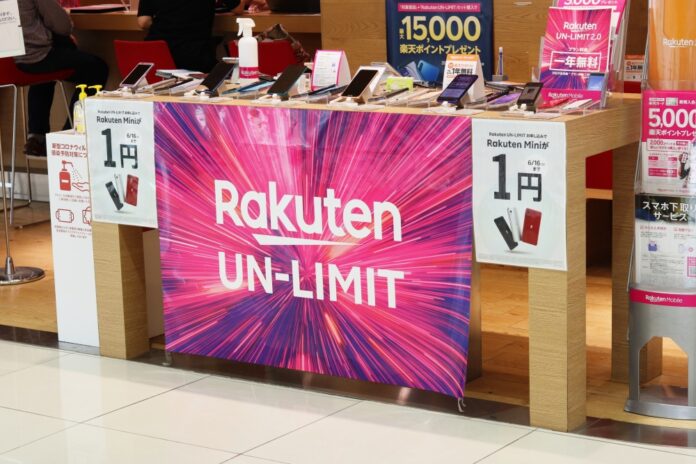The Japanese mobile unit has had a profound impact on the Rakuten Group’s finances
Nikkei Asia reports that the Japanese e-commerce giant Rakuten intends to issue JPY250 billion ($1.87 billion) in bonds as costs continue to rise at Rakuten Mobile. The money raised will be used as working capital, according to the report.
Rakuten raised $500 million in the US junk bond last November at the eye-watering rate of 12% yield and today is looking to add a further $200 million. According to the Singapore Business Times, “The firm’s November transaction also went to funding capital investments for its mobile business and for the repayment of debt. In December, its ratings were cut further into junk by S&P Global Ratings.”
Global attention
Rakuten Mobile has attracted attention from across the telecoms industry since announcing it would build the world’s first cloud-native, fully virtualised 5G network at MWC in 2019. Its original CTO, Tareq Amin, said in an interview in June 2021, “Bottom up, mix-and-match open RAN also lowers costs over traditional vertically integrated networks; that’s 30 to 40 percent savings for present 4G technology and up to 50 percent savings for next-generation 5G networks”.
As well as using groundbreaking technology, there is another unique angle to the Rakuten Mobile story: Rakuten Group offered more than 70 services to 100 million customers at the time the announcement was made. It sees the mobile operator as a way of expanding and strengthening its e-commerce ecosystem, through a sophisticated loyalty programme that promotes cross-selling and upselling other services to its mobile base.
It’s been a tough journey. Naturally delays are to be expected when pioneering a technology and the Japanese market might be one of the most expensive in the world, but Japanese consumers are also conservative.
Taming losses?
Despite record group revenues, Rakuten Mobile’s losses dragged the group into a loss of 78.6billion yen at the end of Q3 2022. Without the mobile unit, the group would have had an operating profit of 47.2 billion yen.
On the Q3 earnings call last November, Rakuten Group kept the faith with its long-term strategy and predicted its mobile service provider will be in operational profit by the end of this year. The presentation that accompanied the earnings report seemed to mollify investors who had been increasingly anxious about its financial drain on the rest of the group. Even after the announcement gave the shares a small filip, they still were 40% down on their price at the start of 2022.
In particular, revenues are rising and costs falling, as shown on the graph below which was shared with investors at the time. Also, Rakuten Mobile is launching enterprise services, which is where the telecoms industry expects the ‘real’ money to be made from 5G.
Still, the tranche of $1.87 billion bonds are the single largest issuance in Rakuten’s history – it was founded in 1997 – and will mature on 10 February 2025. Nikkei says it is expected that they will receive an A-rating from Japan’s Credit Rating Agency.



